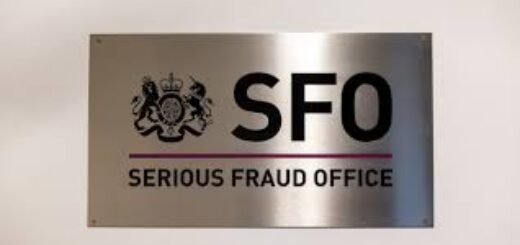Deutsche Bank Settles FCPA Case with SEC for $16 Million for Hiring Relatives of Public Officials

If there ever was a poster-child for reputational damage for a financial institution, Deutsche Bank would be the first and only candidate. Talk about a bank that is in trouble and continues to fall under government scrutiny.
Last week, Deutsche Bank agreed to pay the SEC $16 million for its hiring of relatives of public officials in China and Russia. (Here). Deutsche Bank joins a long list of other financial institutions and one company for illegal hiring schemes, including Credit Suisse ($47 million, here); JP Morgan Chase ($264 million, here); BNY Mellon ($14.8 million, here); and Qualcomm ($7.5 million, here).
In 2010, Deutsche Bank enacted a written hiring policy in the APAC region to prevent its employees from offering temporary employment to candidates referred by current or potential clients to detect and prevent corrupt hiring practices. This hiring policy was not effectively enforced and did not apply to all categories of hires. For example, it did not apply to “lateral” hiring or hiring of “experienced” candidates. Additionally, Deutsche Bank, although aware of corruption risks in its referral hiring practices, failed to implement global policies sufficiently to address this risk until 2015.

Starting in 2006, Deutsche Bank engaged in referral and/or relationship hiring to generate business by extending personal favors to clients, including government officials, through hiring their relatives. For example, during the time Deutsche Bank was working to obtain an IPO from a Chinese client, the client’s Chairman asked Deutsche Bank to hire his son. In other instances, Deutsche Bank agreed to a client referral hire request based on the anticipated fees Deutsche Bank could expect to earn from increased business with the government institution.
Referral hires circumvented competitive and merit-based hiring policies which focused on applicants’ grade point average, pass competency numerical and verbal skills tests, and advance through interviews. In many instances, referral hires were less competitive than candidates in the formal hiring process. To assist referral hires, some Deutsche Bank employees in APAC helped candidates to draft portions of their resumes, provided them with interview questions and answers in advance and coached them on the interview process. Some were even hired without even being interviewed.
The SEC also cited failure of Deutsche Bank, in some instances, to enforce conflict of interest restrictions typically used to “wall off” employees from working on transactions involving the employee’s relative. Specifically, some of the referral hires worked on transactions in which their relatives were involved without regard to actual conflicts of interest.
To circumvent, Deutsche Bank’s hiring policies, APAC officials referred relative hires to a Deutsche Bank joint venture for hiring. Deutsche Bank’s policy did not apply to its joint venture and APAC officials relied on this fact to evade HR and compliance objections.
Similar hiring practices took place in Russia during 2009 to 2012. Deutsche Bank hired relatives at the request of Russian foreign officials. In some cases, the candidates were unqualified. One referral hire performed so poorly in London that he was characterized as “a liability to the reputation of the program, if not the firm.”

In one poignant example involving an APAC referral hire, the specific employee threatened to quit unless she was reassigned to the Hong Kong office. Deutsche Bank was in the midst of a significant transaction with the specific relative’s SOE and was under consideration for additional business.
To calm the situation down and appease the SOE relative’s daughter, Deutsche Bank flew her to Hong Kong and APAC management offered her a job even though there was a global hiring freeze. To circumvent the freeze, APAC employees categorized her hiring as a “secondment.” The hiring was done in the hopes of earning a $10 million fee and avoiding a “relationship deadlock” if they did not hire her. Within days of her hiring, the employee’s father met with Deutsche Bank to discuss other potential business, including a lucrative IPO. Eventually the daughter was formally hired and she was assigned to work on her father’s SOE business.
















Struck by the ingenious ways bank employees used to evade controls! This shows why Compliance must always draw in HR as a partner!